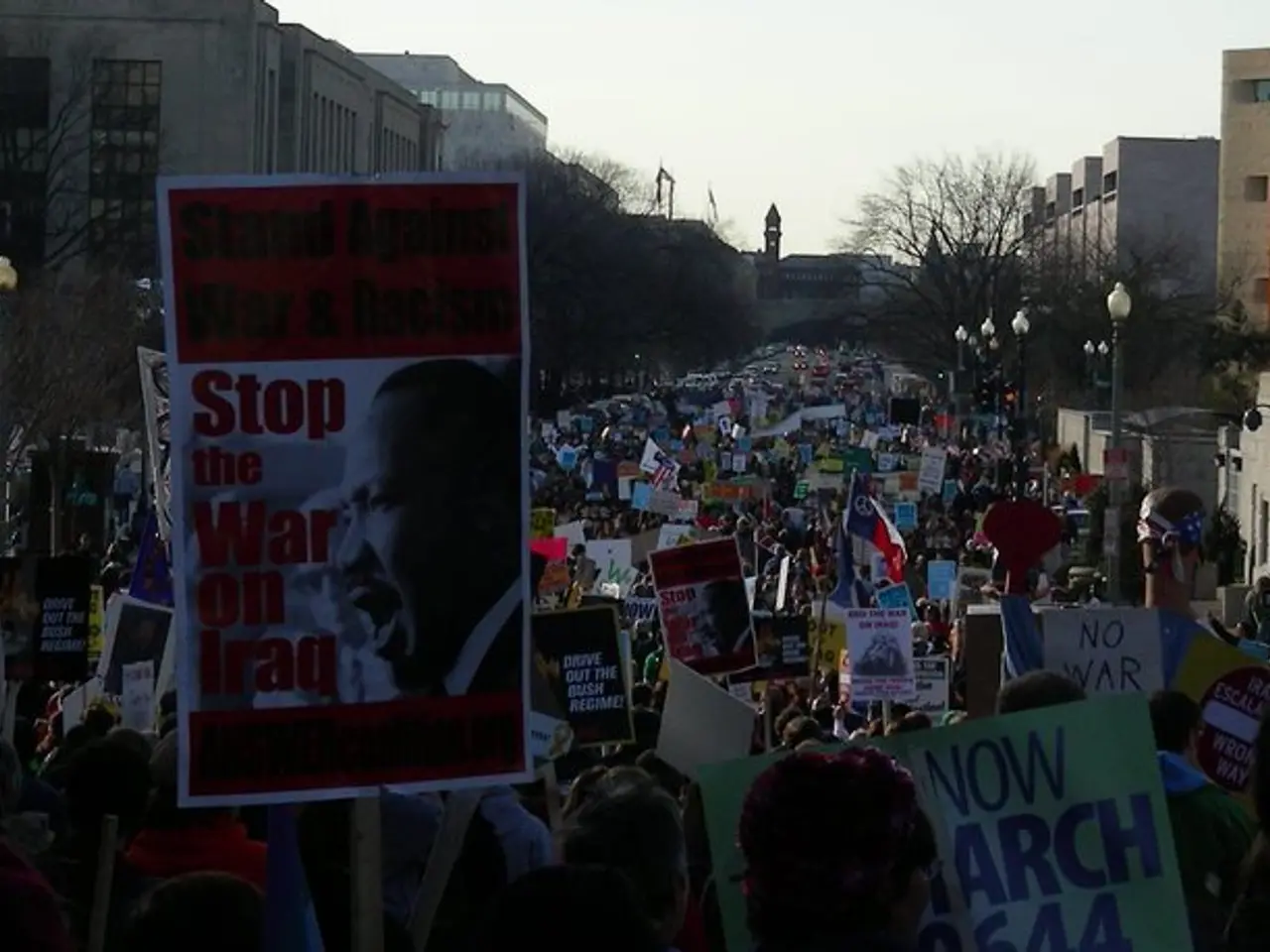Questioning the Rationale for Remaining Silent
In recent times, there has been a growing debate about the significance of memorial days dedicated to controversial figures or events. This discourse arises due to the fact that such memorials often honour individuals or causes associated with oppressive histories, such as slavery, racism, or rebellion against the United States.
The current situation is of paramount importance, as many question whether it is appropriate to honour those whose legacies represent harm and conflict with contemporary values of justice and equality. For instance, statues and memorials to Confederate leaders are increasingly seen as glorifying a pro-slavery movement and perpetuating misleading "Lost Cause" mythology that justified racial subjugation and Jim Crow laws.
The controversy lies in the fact that these memorials were often erected during periods aimed at enforcing segregation or revising history to promote white supremacy, rather than simply commemorating historical facts. The presence of such memorials in prominent public spaces can feel like a celebration of those ideologies to many people today.
The question, "Why should anyone stand in silence on your memorial day?" is repeated, potentially emphasising the question's importance. Silence, in this context, is perceived as a means of locking a door, implying that it might prevent further discussion or action.
On this memorial day, the deaths of innocent people, including children, are being remembered. Hatred is linked to the entity being memorialized, and bloodshed is associated with this day. Lies have been spoken in connection with this memorial day, further fuelling the debate.
The ghosts of the taken, those who died under controversial circumstances, are a poignant reminder of the past. However, the question remains: Why should one stand in silence on this memorial day?
Political actions reflect these tensions. Some leaders argue that removing or altering these memorials corrects historical misrepresentation and aligns public spaces with inclusive values, while others see removal as "erasing history" and damaging national unity.
In summary, the controversy stems from the clash between honoring certain historical figures or events and recognizing the harm their legacies represent, as well as debates about how history should be remembered publicly and respectfully to all communities. This debate is a reflection of our ongoing struggle to reconcile our past with our present values and to create a future that is just and equitable for all.
[1] The Washington Post. (2021). Biden orders review of military bases named for Confederate leaders. https://www.washingtonpost.com/politics/2021/01/20/biden-orders-review-military-bases-named-confederate-leaders/
[2] The New York Times. (2017). Trump Issues Executive Order to Keep Confederate Monuments Intact. https://www.nytimes.com/2017/04/26/us/politics/trump-confederate-monuments.html
[3] The Atlantic. (2017). The Real Reason Confederate Monuments Were Built. https://www.theatlantic.com/politics/archive/2017/08/the-real-reason-confederate-monuments-were-built/537008/
[5] The Guardian. (2021). Confederate monuments: what they represent and why they matter. https://www.theguardian.com/us-news/2021/may/08/confederate-monuments-history-race-racism
Read also:
- Weekly happenings in the German Federal Parliament (Bundestag)
- Southwest region's most popular posts, accompanied by an inquiry:
- Discussion between Putin and Trump in Alaska could potentially overshadow Ukraine's concerns
- Massive 8.8 earthquake hits off the coast of Russia's Kamchatka Peninsula, prompting Japan to issue a tsunami alert.







